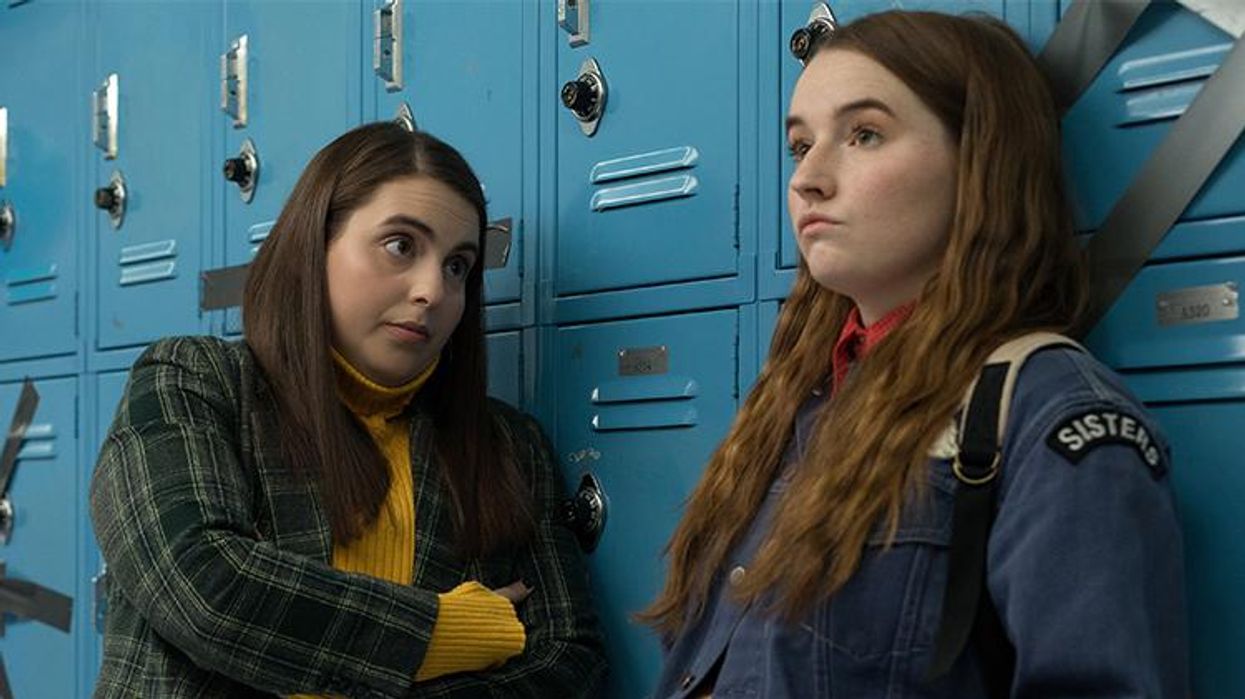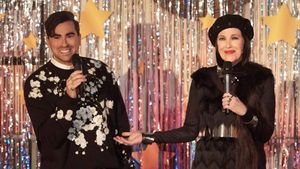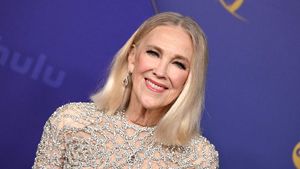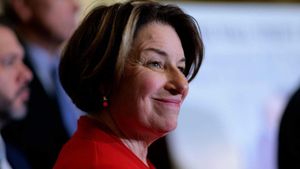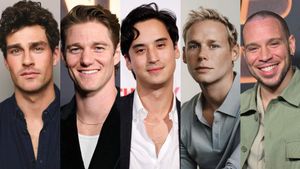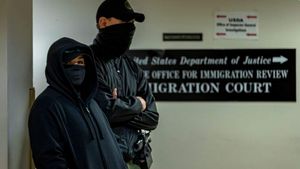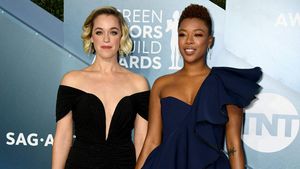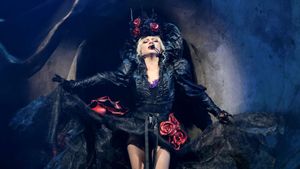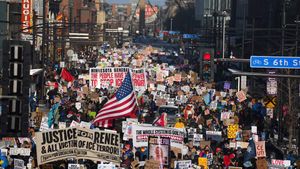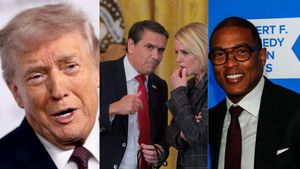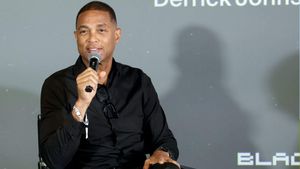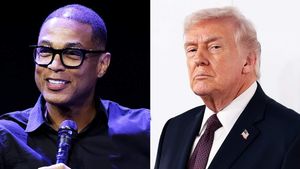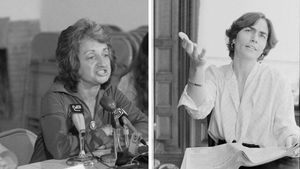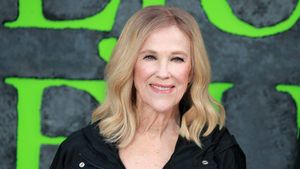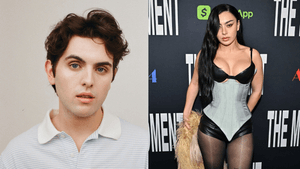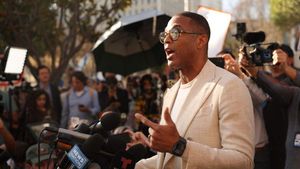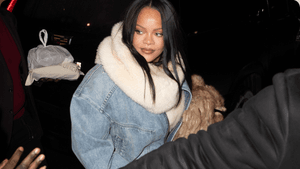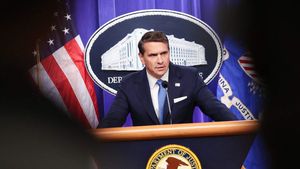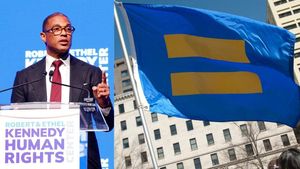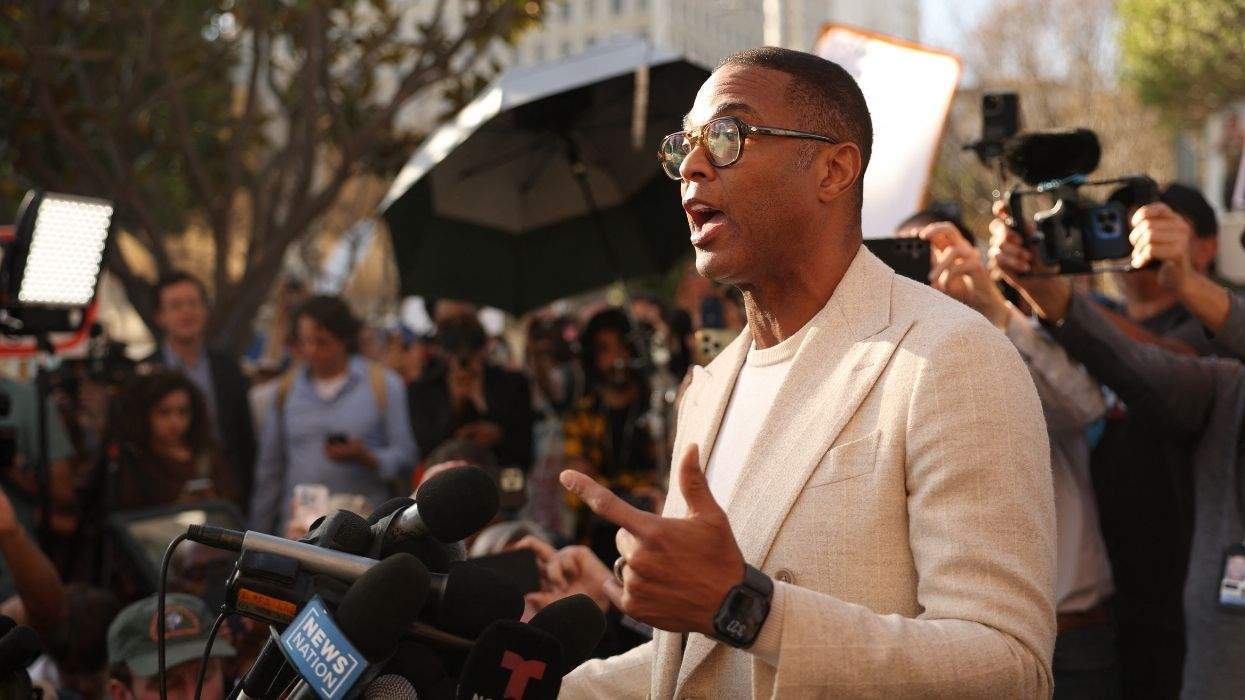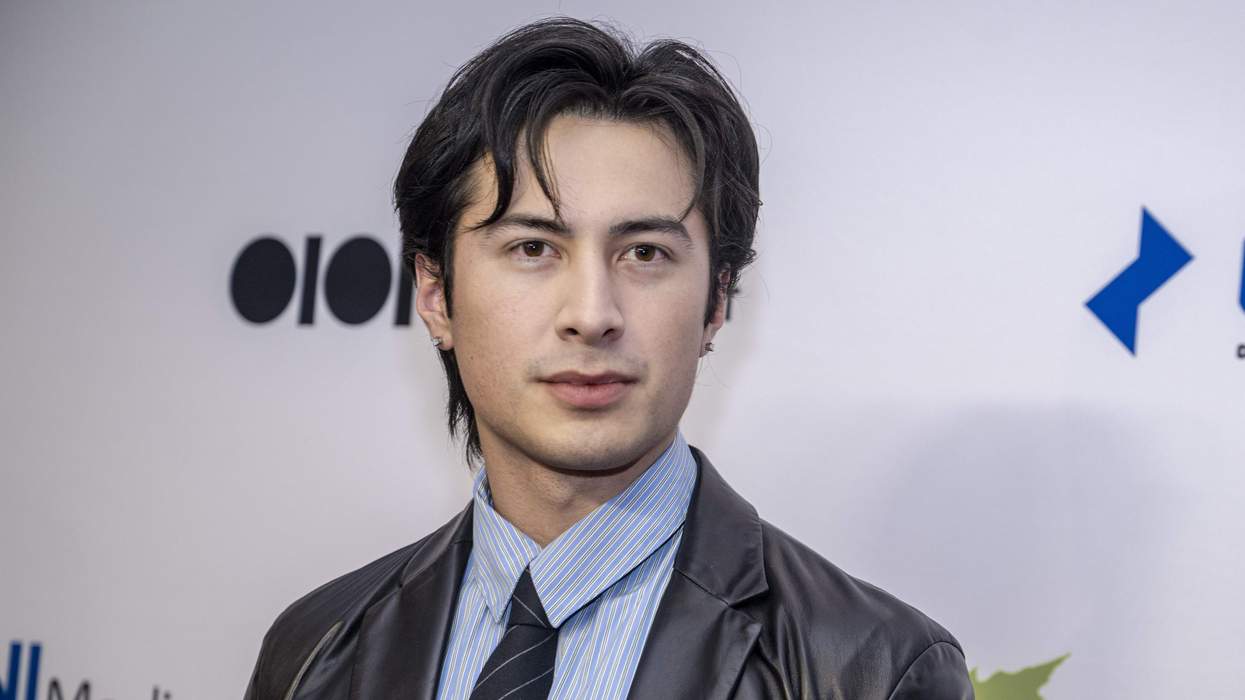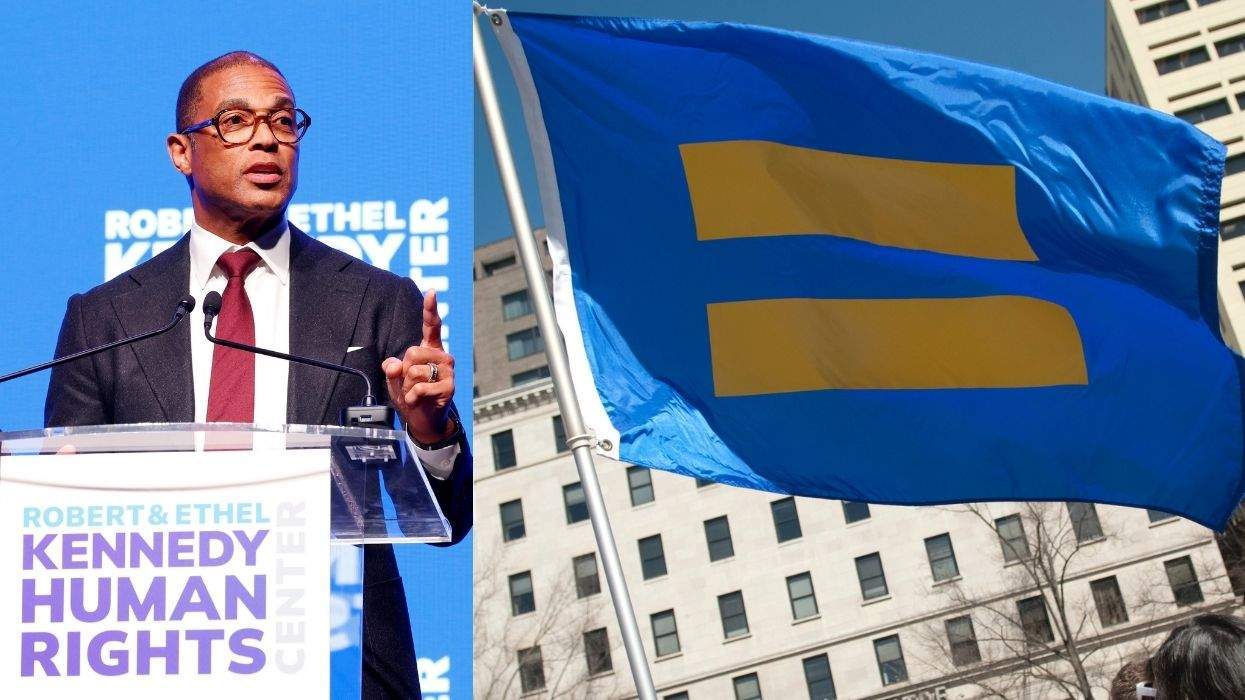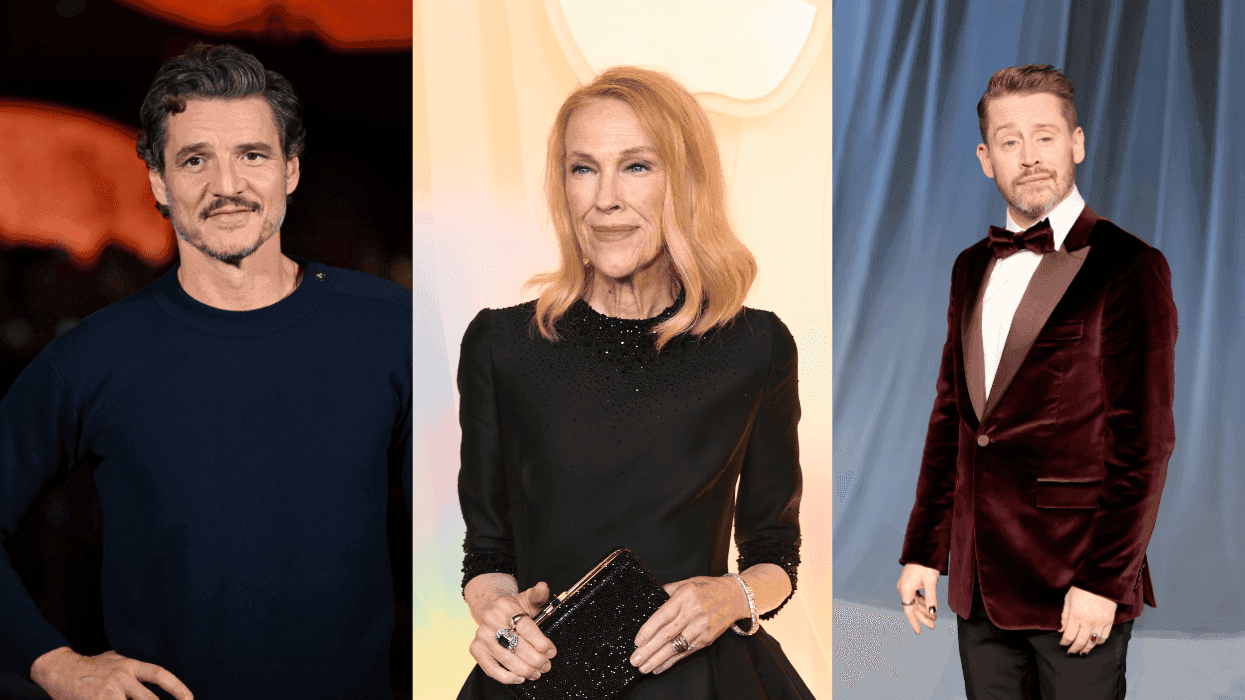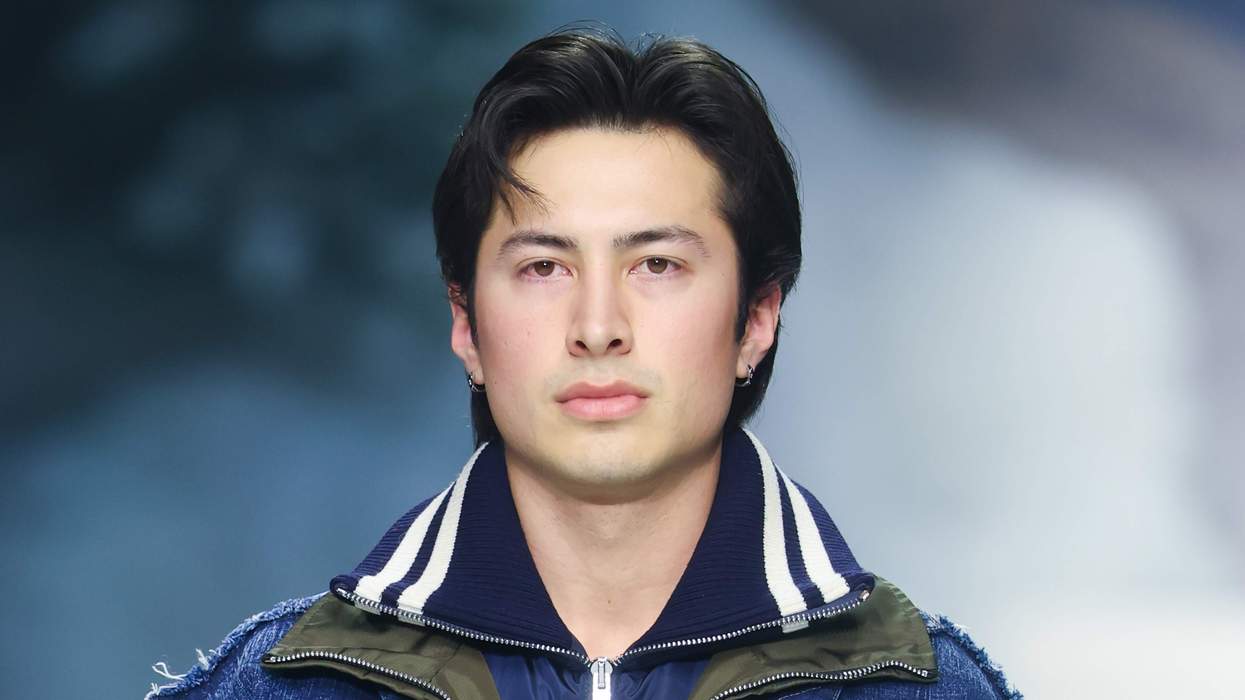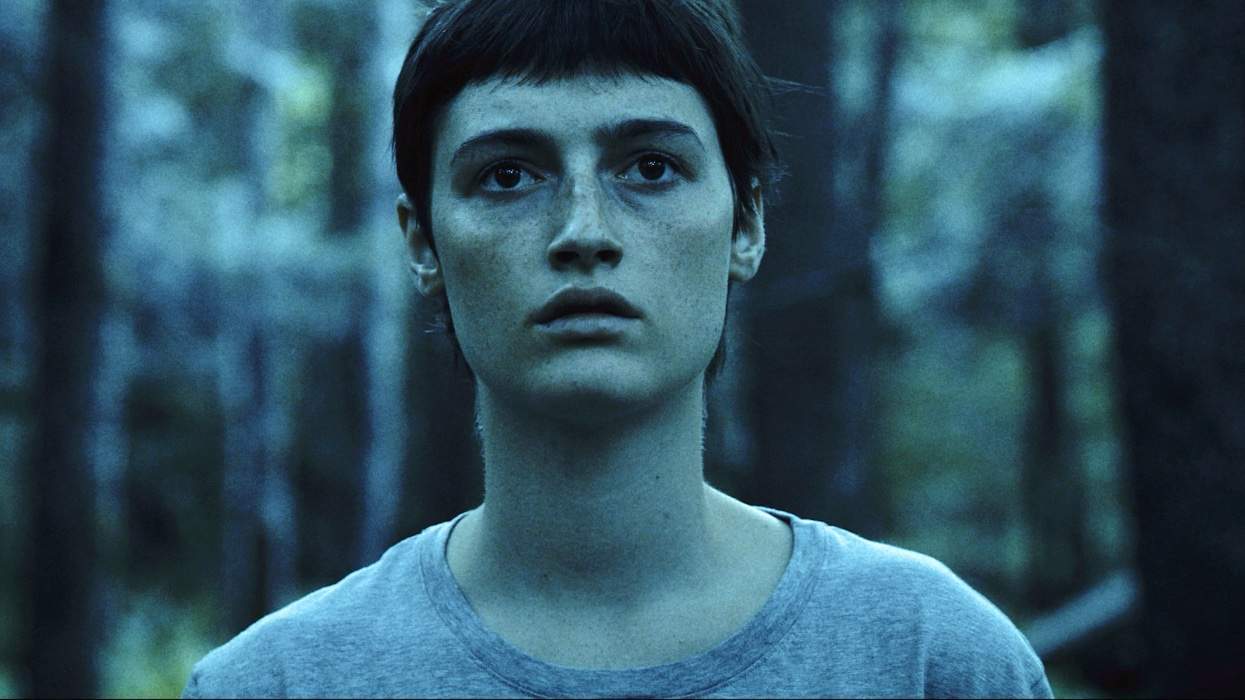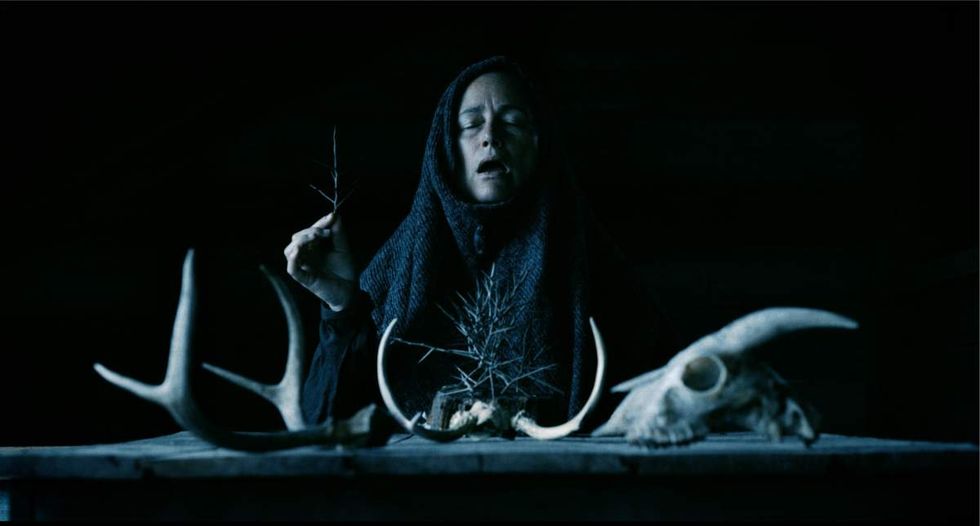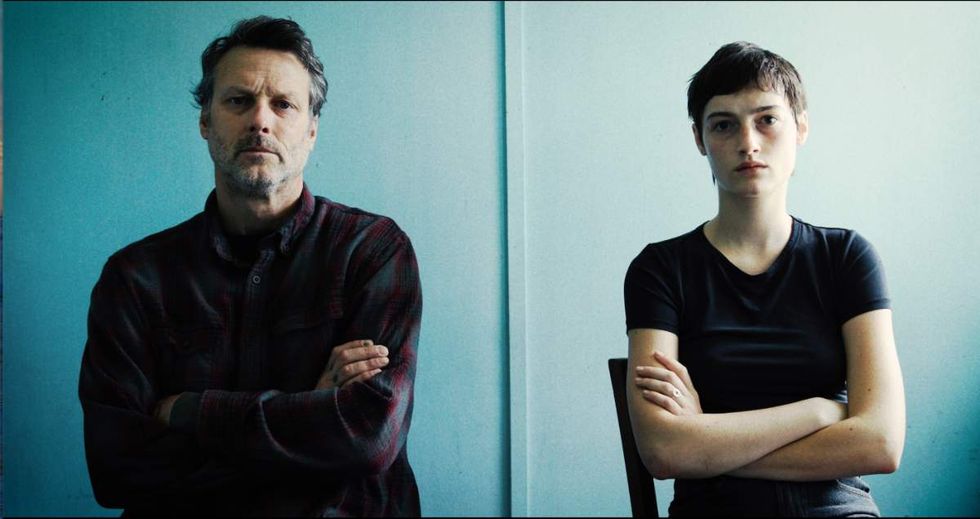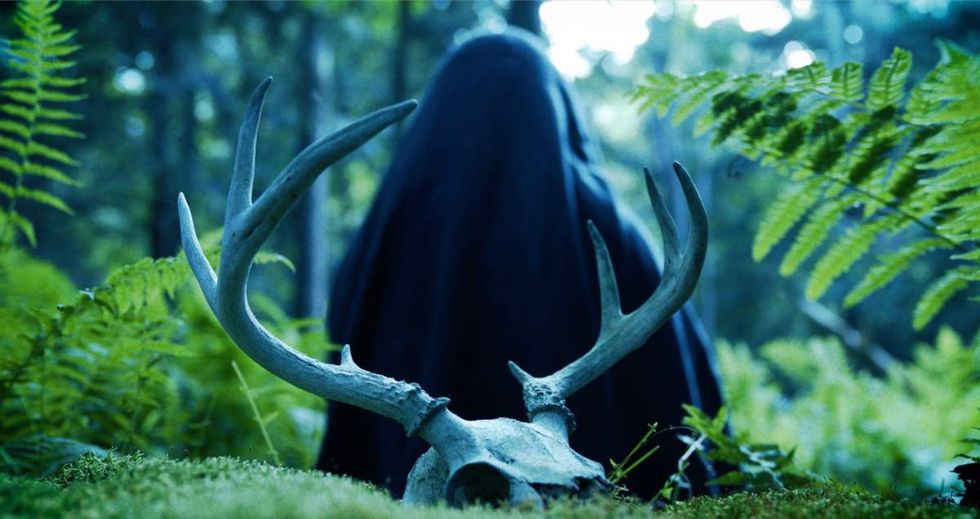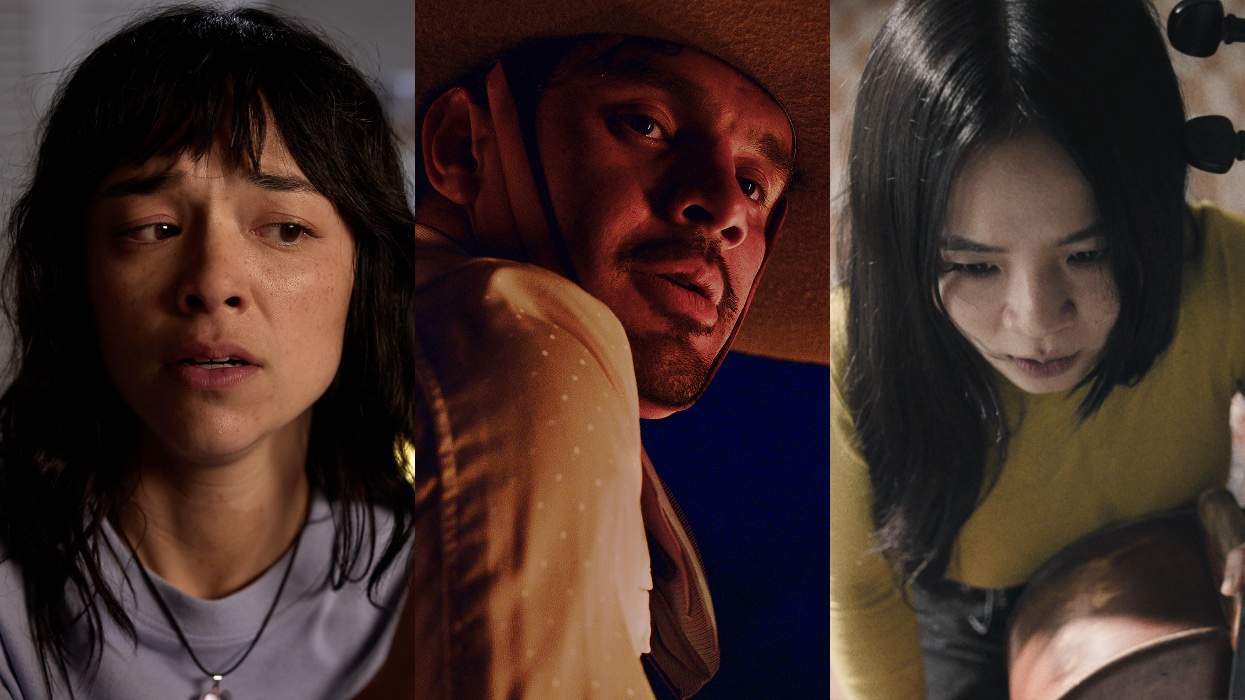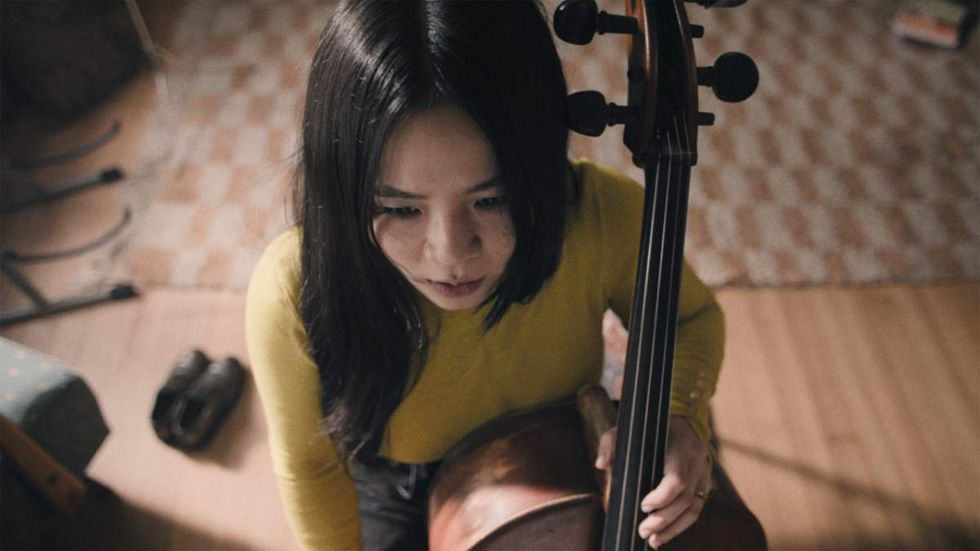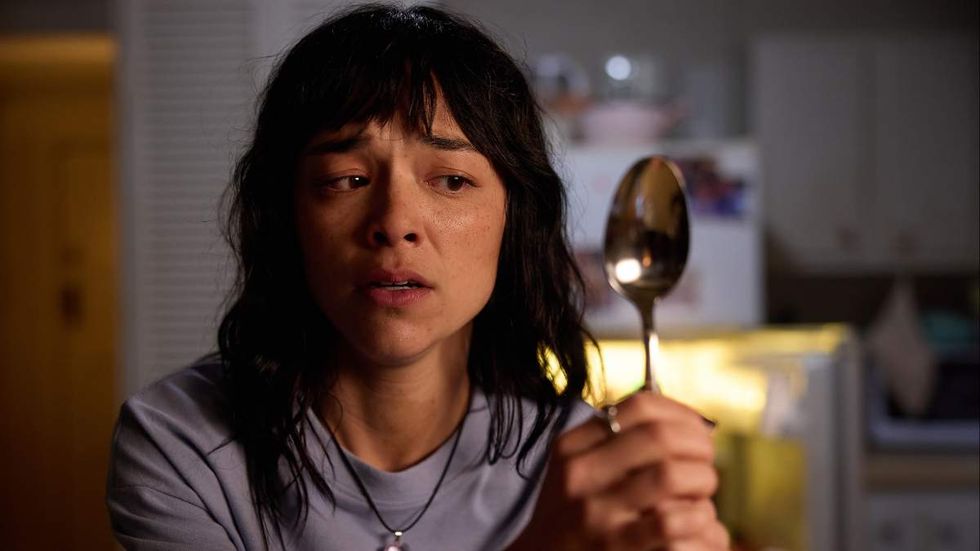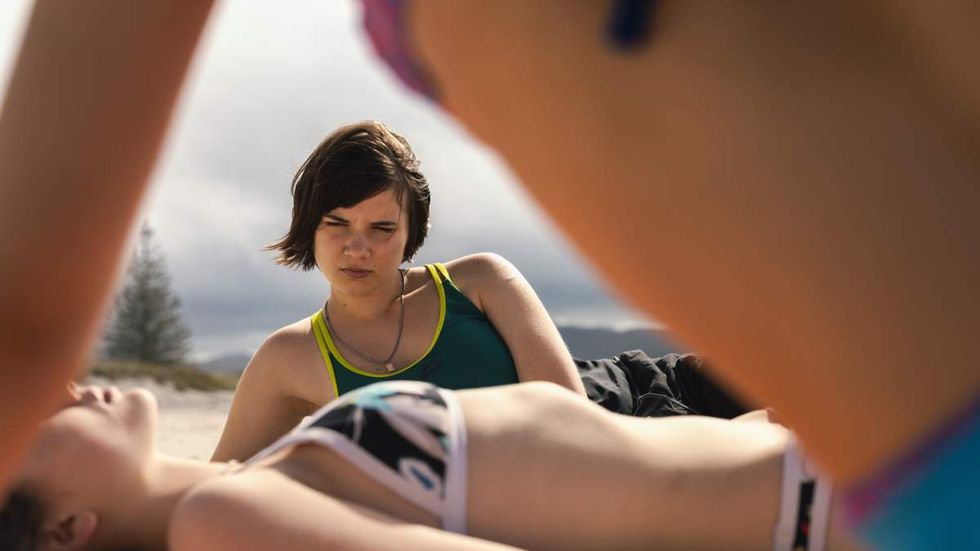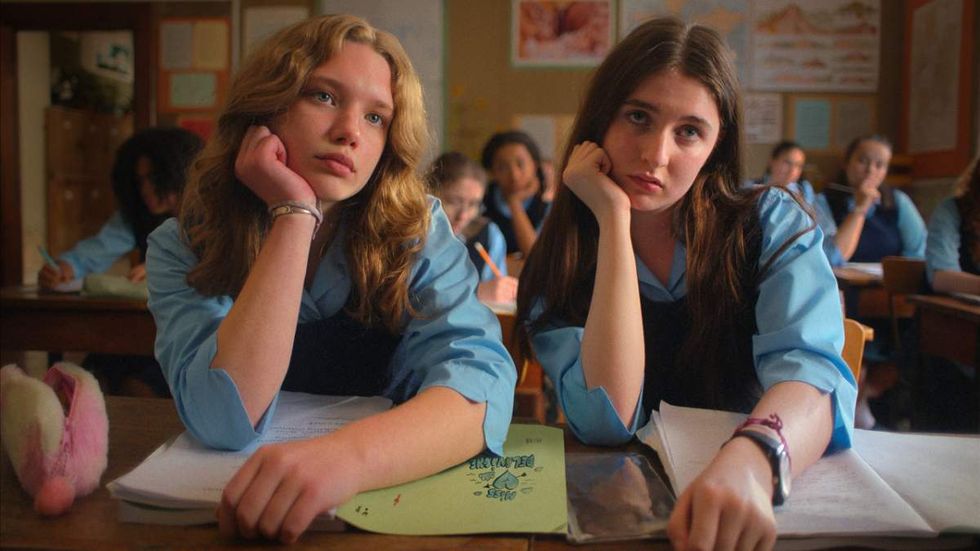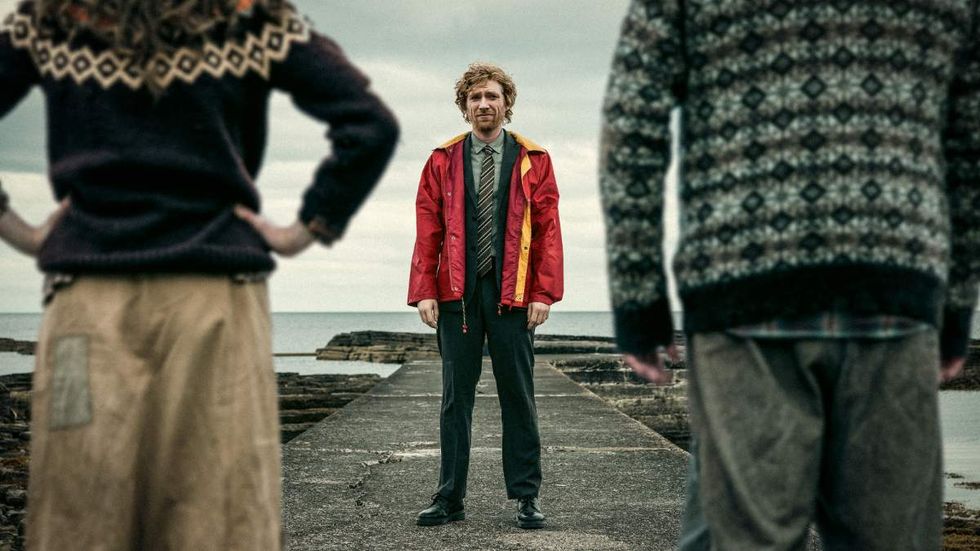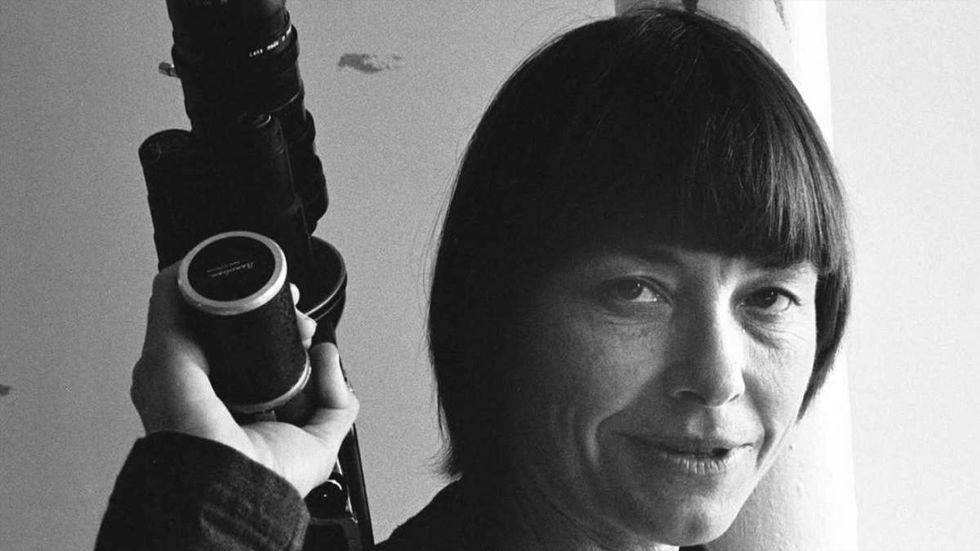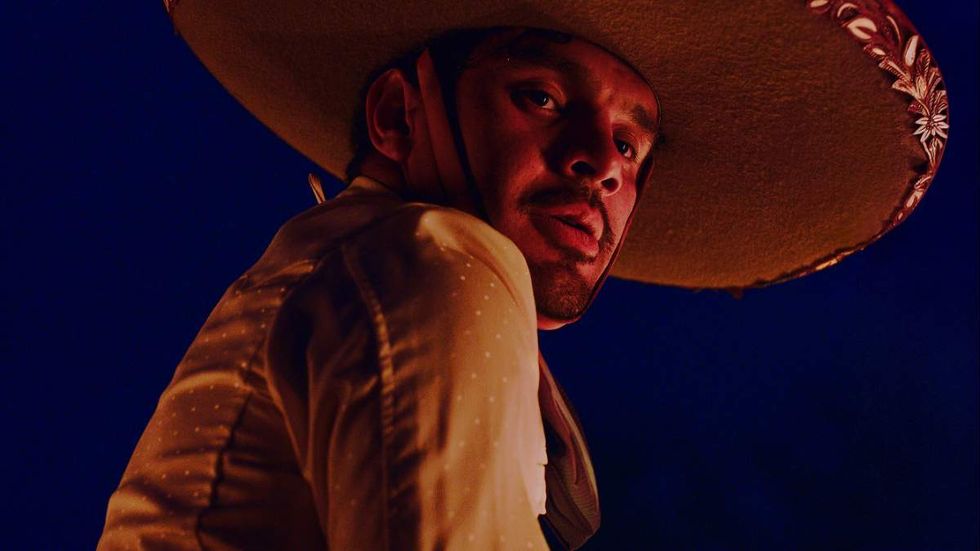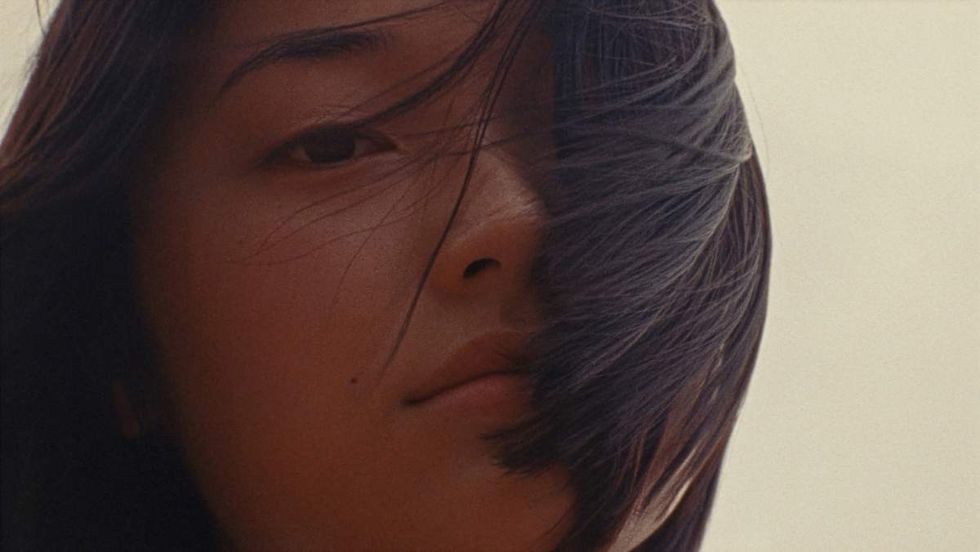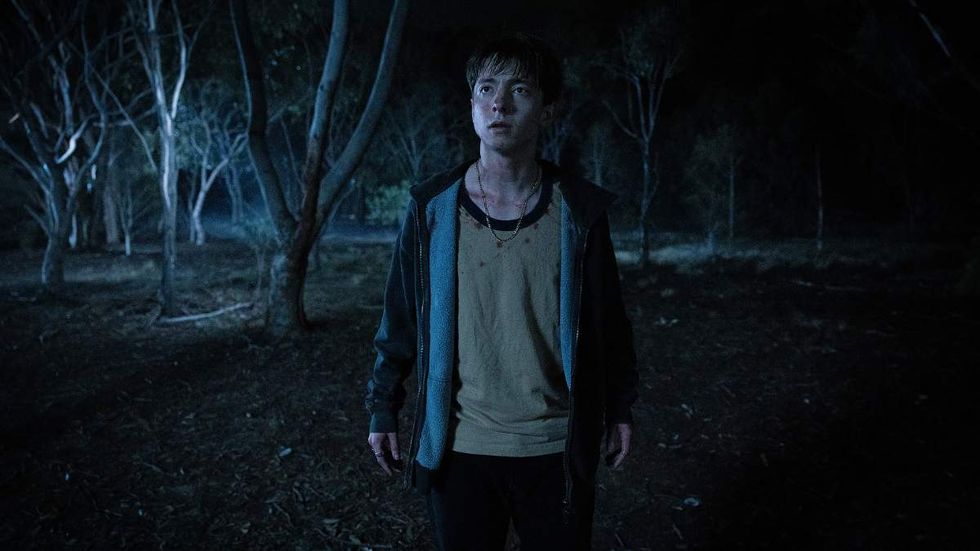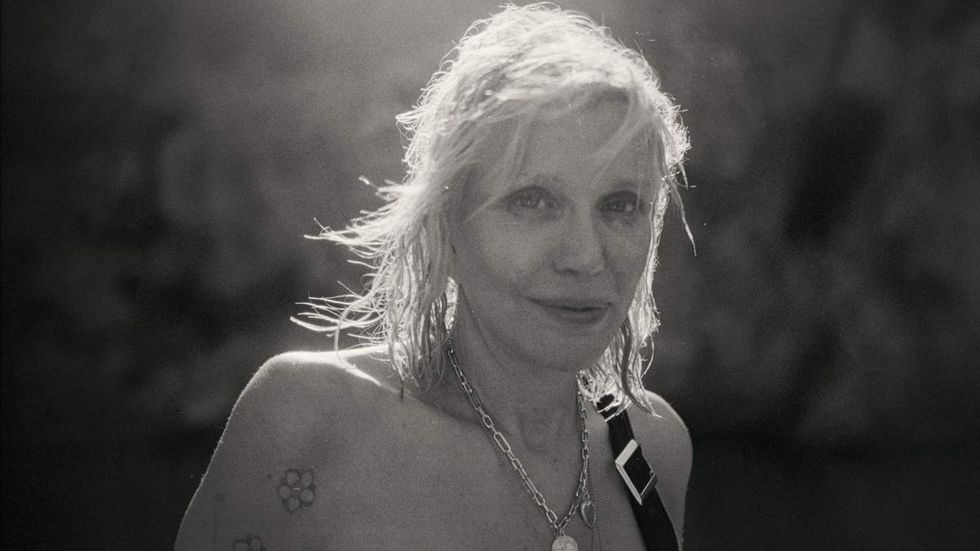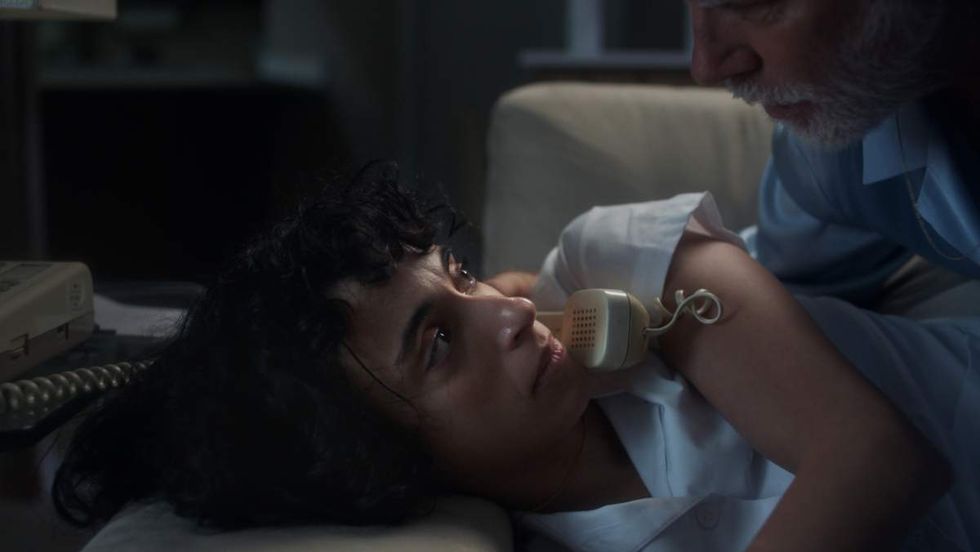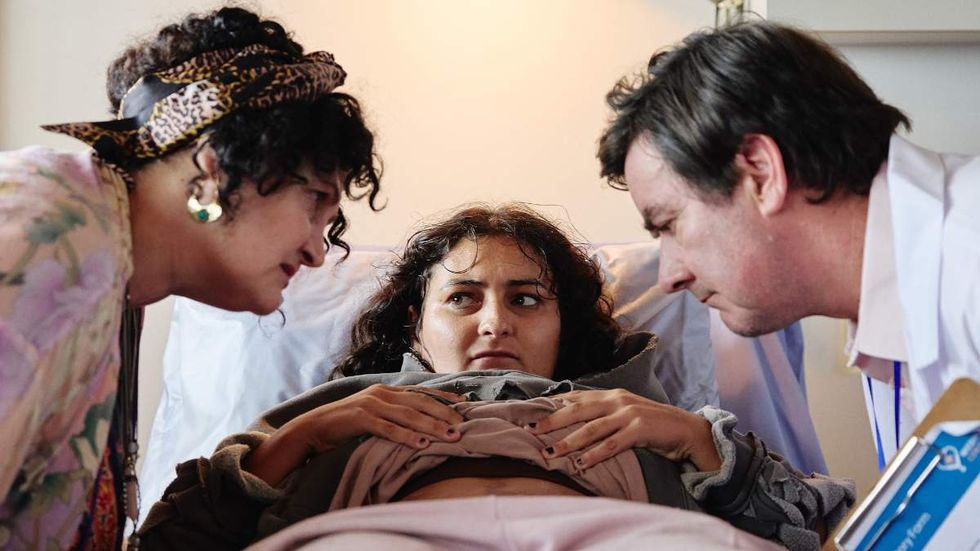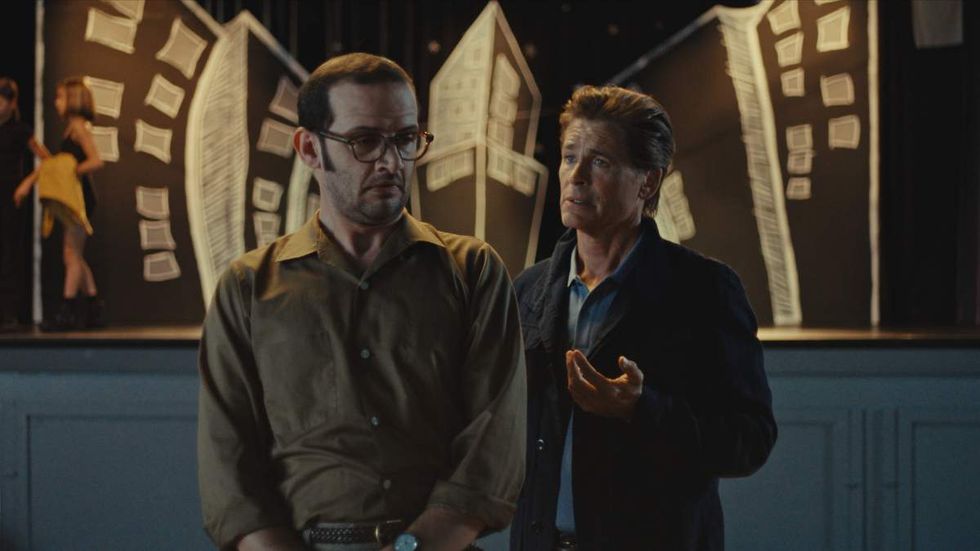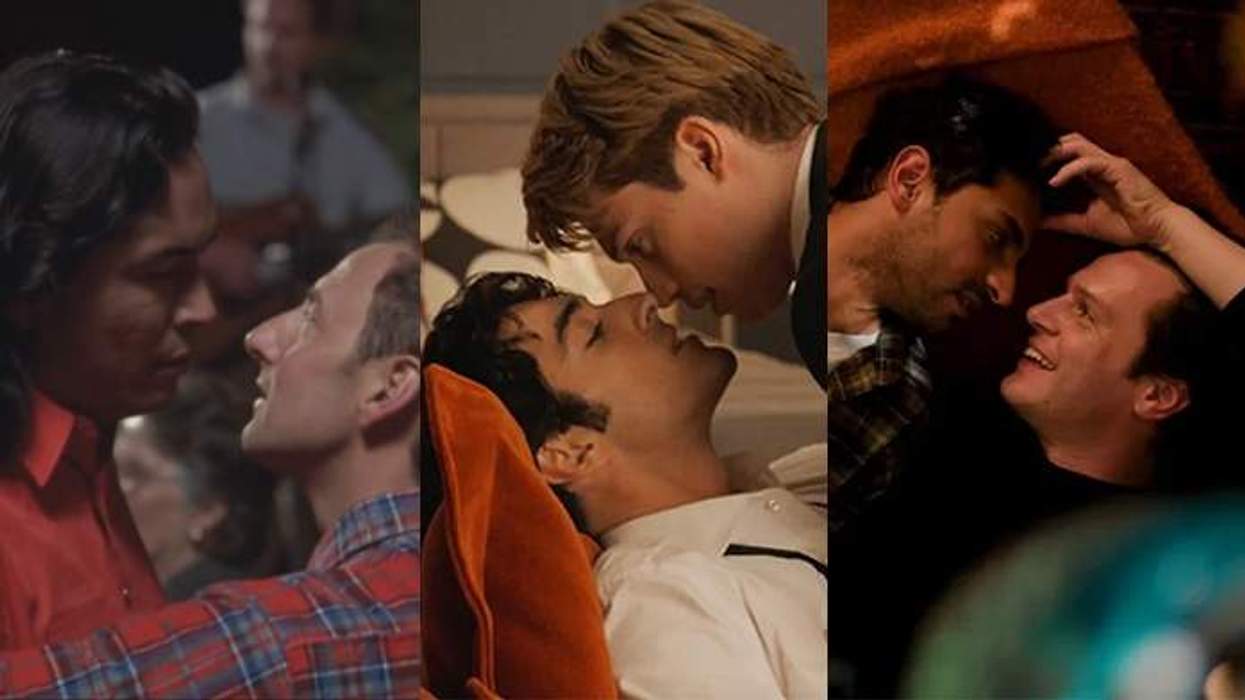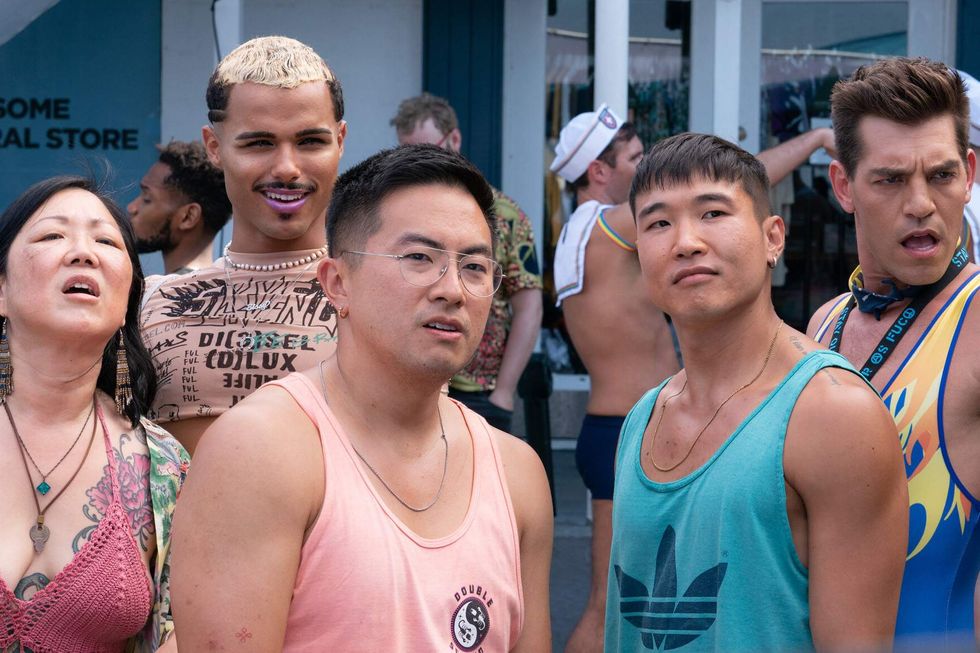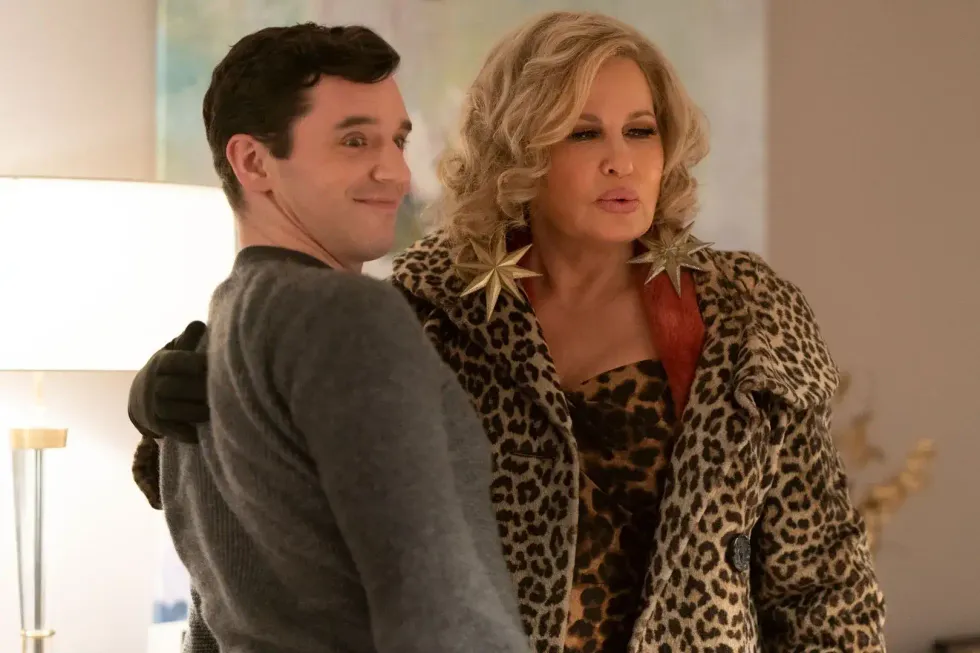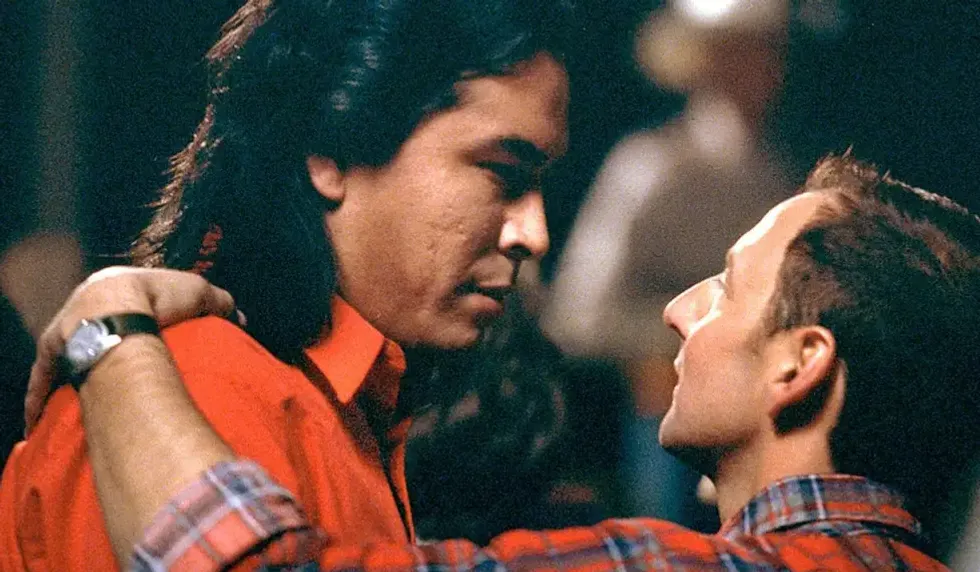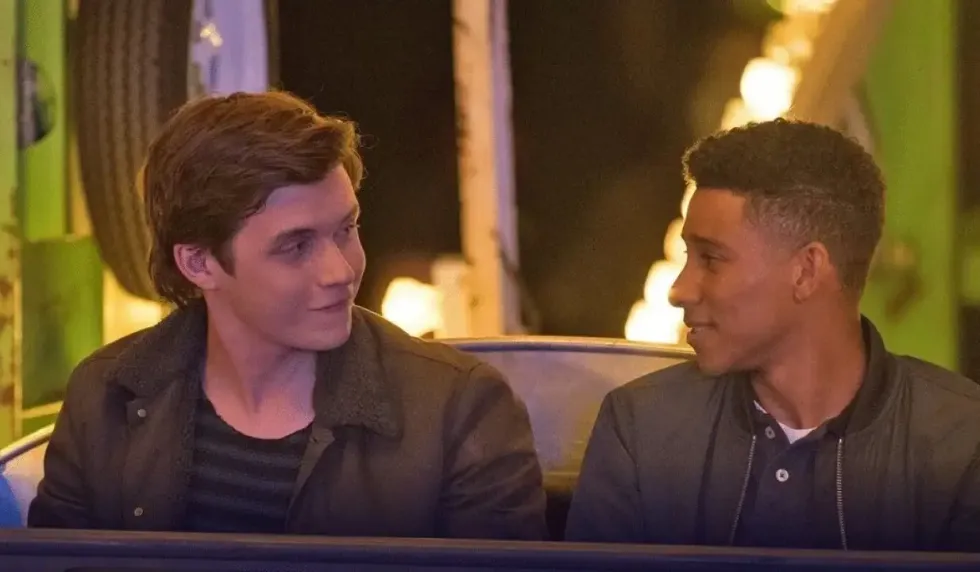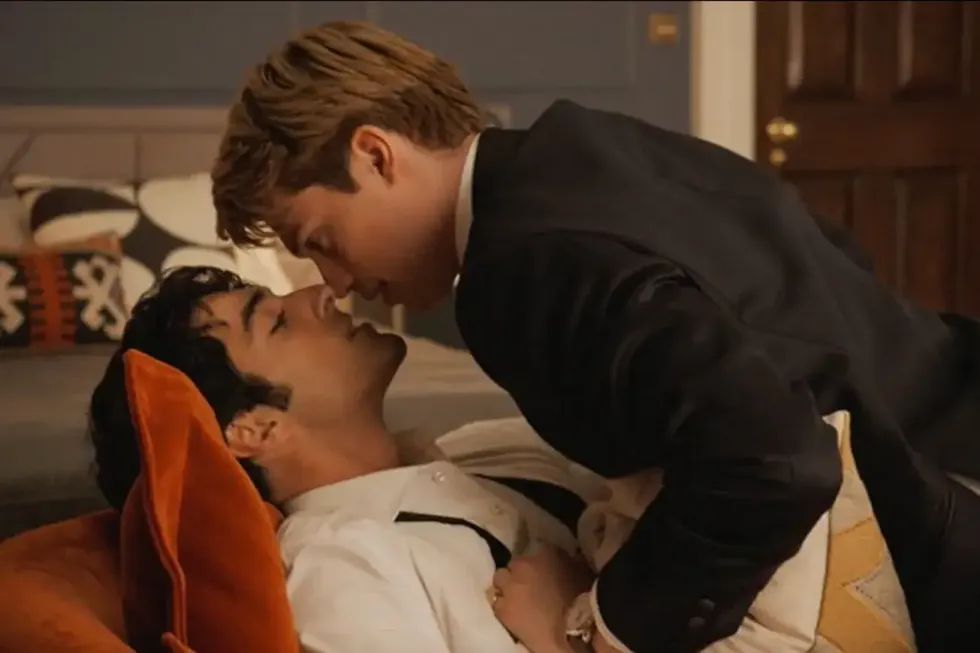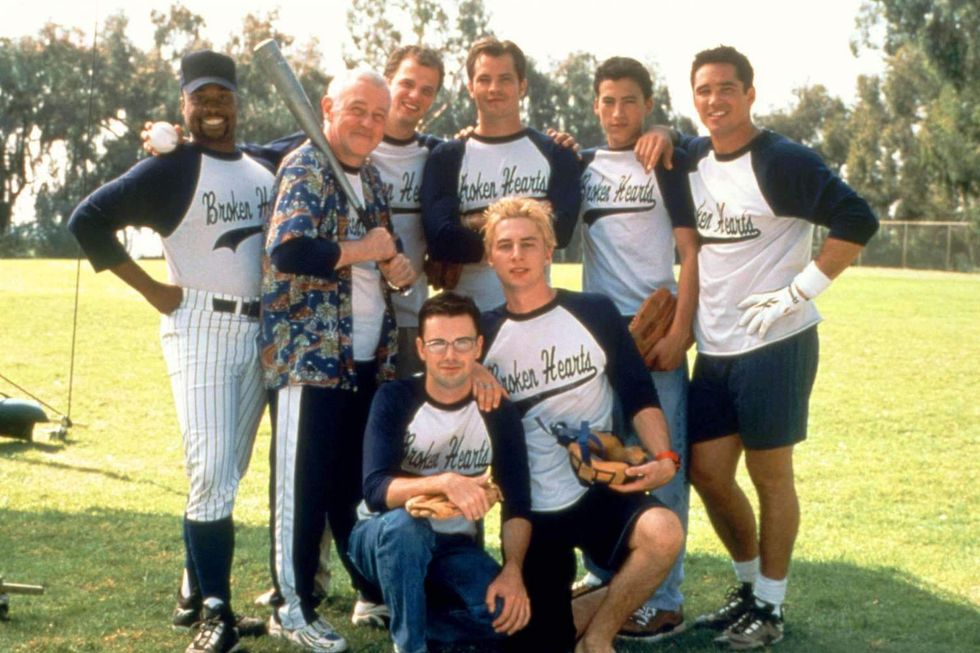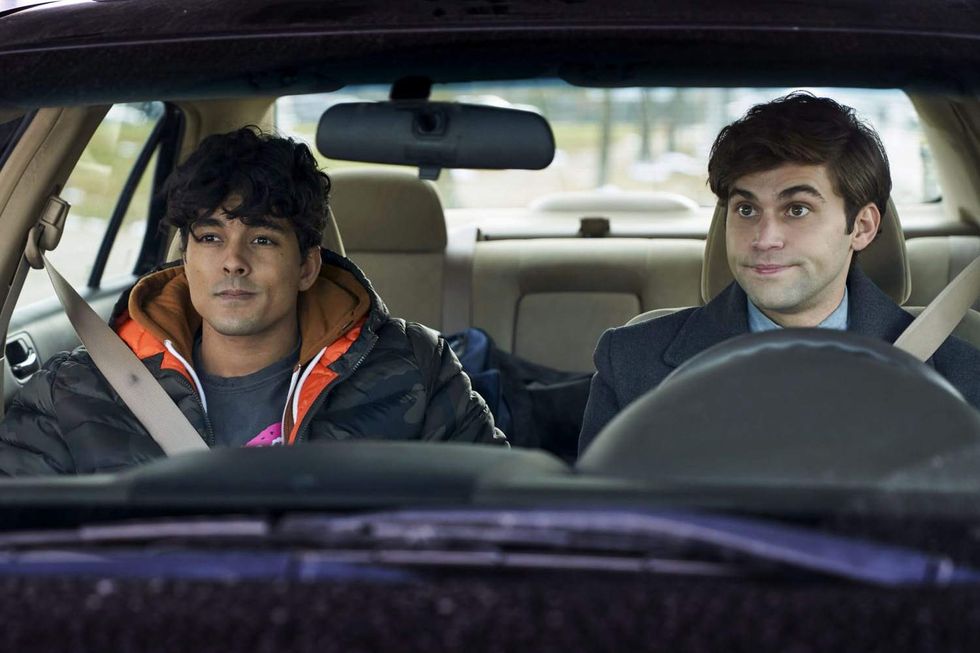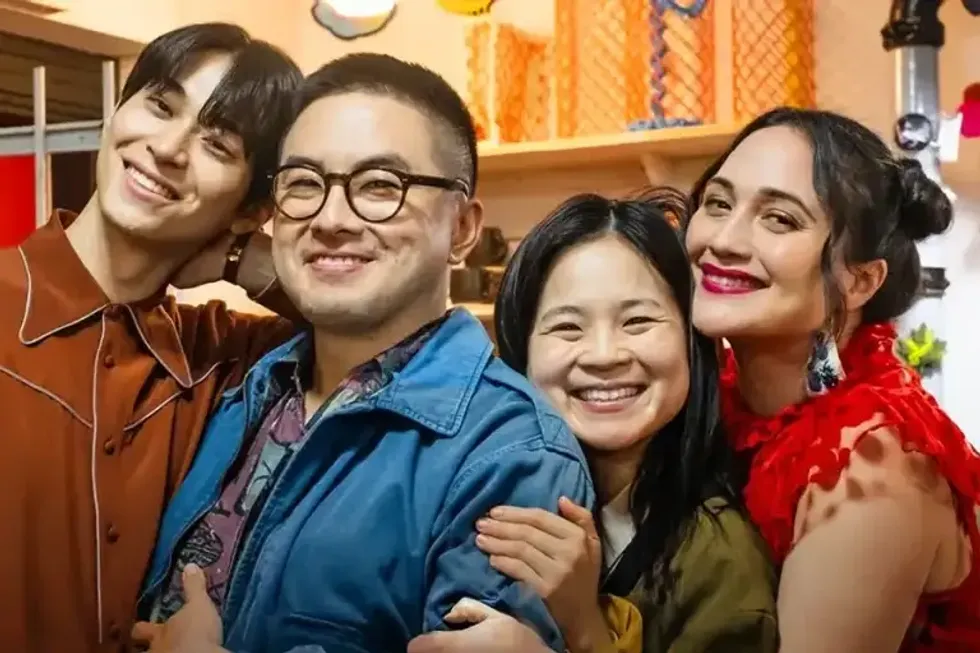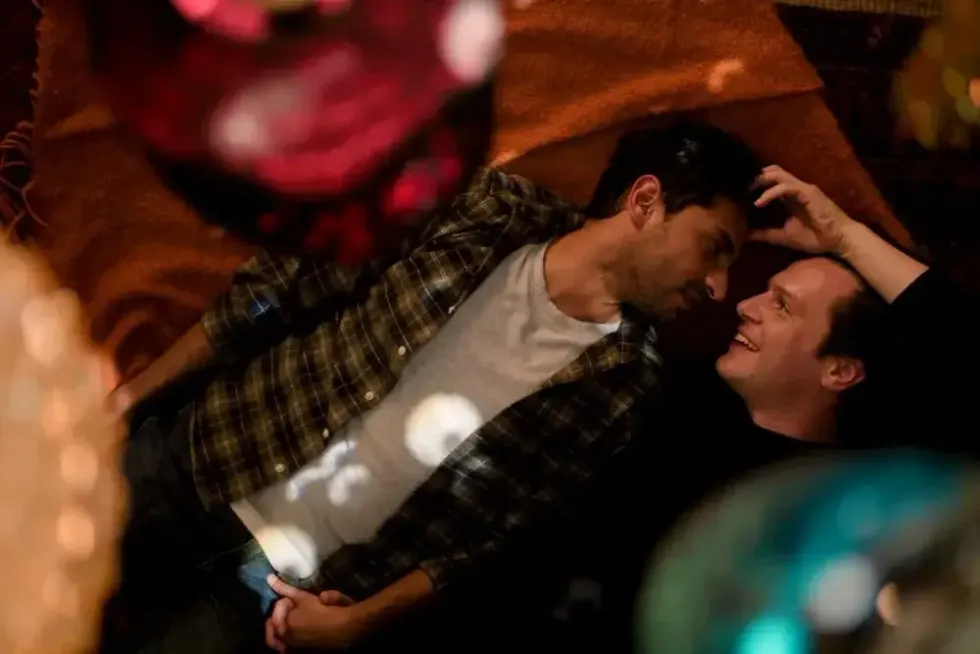More than a decade after Jonah Hill and Michael Cera helped define the millennial generation in high school buddy comedy Superbad, Hill's younger sister, Beanie Feldstein, is reinventing the genre for Gen Z in a deliciously forward-thinking teen comedy of her own.
Olivia Wilde's directorial debut, Booksmart debuted in theaters last weekend to rave reviews. While the New York Times says it "Crashes the Party and Aces the Test," it hasn't performed as well as hoped in the box office and celebrities like Taylor Swift, Mindy Kaling, and Ryan Reynolds are coming out of the woodwork to urge their followers to support it.
Booksmart is smart, hilarious, and the most exciting for us at PRIDE, very queer. We sat down with Feldstein who opened up about her own queerness, exploring the awkwardness of that first time on screen, that hysterical tripping scene, and why the world needs Booksmart.
PRIDE: We haven't seen many high school buddy comedies led by two women. Was that exciting for you to jump into?
Beanie Feldstein: Well, exactly as you said, we haven't seen this before, and that's always exciting. I think my friendships matter so much to me, and my best friends are still now my best friends from high school. I treasure that dynamic and that relationship and that time of my life. I was so enthralled that the comedy between the two of them comes from their love for each other and comes from their intellect.
That was so exciting to me, to see two women that never sacrificed their wit and their intelligence for their comedy, and also are never competitive. That was just so, so exciting because that's how I am with my friends. Every page, I was like, "This is exactly how it is. Yes."
I only ever really want to be a part of projects that I would want to go see or would, if I saw a trailer, I'd be like, "What's that? I can't wait to see that." Booksmart, you kind of read a script with the lens and Booksmart was a no-brainer for me.
You play Molly and Kaitlyn Dever plays Amy, who has a crush on a girl classmate. This story very easily could've been about two straight girls. Why was this queer storyline exciting for you to be a part of?
Yes. Yeah. Oh, my gosh, absolutely. I think, first of all, the film, there's so many incredible coming-of-age stories that we love and we cherish but a lot of them are about getting to the guy at the end. And, if there are queer characters in a lot of these films, it is about their coming out, and that's a really, really important story to be telling, but Olivia and Katie, they really wanted to explore, "So they're out. What happens next?"
They're just a teenager that's sexually curious, they're excited, they're nervous, they're anxious, they're horny, they're sexy, they're not sexy, they're all the things that you are at every point in your life but also when you're a teenager. Especially when you're a teenager.
We loved the idea that, as it is...I'm queer and with all of my other queer friends... It's just a part of who you are, it's not your defining factor on this earth. It is not your one adjective that's attached to your name, and so when I would go to describe Kaitlyn's beautiful portrayal of Amy, I would say she's a really compassionate girl, she's a really inclusive woman, fiercely intelligent, fiercely loyal, and wants to hook up with girls. Do you know what I mean? That's maybe fifth or sixth or seventh on the list of things that I would say about her, as it is with most queer people that I know.
There are a thousand other things in addition to being queer. It was never something that the movie wanted to hide or not talk about, but they wanted to explore it the way that I feel it in my everyday life and we all do, which is we talk about it, we watch it, we engage with it, but just as much as we do with every other portion of someone's personality or their personhood or a straight person's personality and their personhood.
I'm really, really, really proud of the work that they did and, as someone who's queer, it's just, like, representation is so important, and the correct version of it is so important, and I really think that I'm deeply proud to be a part of this one in that way. And she's not the only queer character in the film.
Yes! Watching, specifically the scene where Amy's walking up to the pool and with the girl she's interested in, and you can see all the anxiousness and stress of this first time experience in her face.
Yeah, and you see from her point of view, like her taking off her shirt and how it... You can feel the excitement in the frame.
Yeah, Kaitlyn always said that that's her favorite moment in the film because it feels like looking at a crush, like the movie is looking at a crush. It's so beautifully encapsulated.
I love the love scene that Kaitlyn's character Amy has with Diana Silvers' character Hope because it's so perfectly teenager.
I love that Olivia, she was like, "I want to show the awkward parts of hooking up. I want to show that you can't get the Converse off and then you pull the pants off and you're laughing but you're also giving consent. It's sexy and it's awkward and it's exciting and it's nerveracking." I always say that close up on the Converse, that could be two men hooking up, that could be two women hooking up, that could be a man and a woman, that could be a genderfluid person. However you identify, everybody wears Converse and everyone is embarrassed to take them off while you're trying to be sexy.
But to tell that narrative of anxiousness and excitement in a teenage hook-up through a queer story is really, really radical, and really special. The one sex scene in the film is a queer sex scene and that's just incredible. To use a queer storyline to tell a feeling that all of us have, whether you're queer or not queer is radical, don't you think? I'm really proud to be a part of the film that does that.
At South by Southwest, you said that Amy's love scene made you tear up. It kind of reminds me just how accepting Amy's parents were, how accepting Molly is of her. I think that's something that a lot of queer people really wanted in high school so it makes me really emotional to watch.
It's interesting because I had a very different experience of sort of, I guess you could say, finding myself. I wasn't at all interested in many people no matter what gender in high school. I just wasn't interested in the concept. It wasn't until I fell in love with my girlfriend that I was like, "Oh, this is who I am," and this person is the most incredible thing to happen to me and I'm so in love. But it wasn't that I was repressing anything in high school, I just hadn't come to that realization yet, if that makes sense. I wasn't keeping something to myself or hiding anything, but I just...I hadn't discovered it yet. I hadn't found her yet, but I think...
Awww...
Yeah. Sorry. Getting sappy. But, for those women or men that maybe are feeling that way in high school, that was not my experience, but maybe if they are feeling that way in high school, I'm so proud of the depiction, as you said, not just of the character herself but of the people around her. That's even more so why I think representation is so important, not only for the person that might be identifying but for their community or their church or their synagogue or their school or their club or their parents to understand what they are going through.
It's not only for the person but for their community that may or may not get it. Whether it's sexuality or religion or whatever it is, representation really has that power, not only to help one person but, I think, to explain a lot to the people around them, too.
You just reminded me of what Love, Simon did last year, when you had all these kids going to see it with their parents or their family members and it kind of opening their eyes, and that's so beautiful.
Absolutely. It's so beautiful. I think, as you said, we pick up after that in a way of, like, "Okay, her parents know, her best friends know. What's next?" Now she's just queer and she's just a kid in high school like any straight kid in high school. There's no difference. I think that's super special.
Booksmart also made a lot of points about assumptions that we make about our peers. It kind of reminded me of Mean Girls in a way, with what we assume about our friends and how we navigate those assumptions.
We project a lot onto people when we don't know them and we haven't taken the time to see them for how multidimensional they are.
Exactly! Why was that such a prominent theme? Especially the last scene, when you leave the party and begrudgingly accept a ride with Triple A.
Triple A is played by my best friend in real life, Molly Gordon.
What?!
Olivia cast us as enemies which was so crazy fun to play.
It was a dream come true to be in this movie with her. She has such an important storyline in the film, I think, because she is really the voice of reason and the voice of wisdom in the film. When you first meet her and she's like, "Oh, my shorts don't have pockets," you, as an audience... What's so brilliant about the script is Katie Silberman, our writer, uses the tropes that we all are going to project onto the characters to immediately subvert those expectations.
When Triple A picks up Molly towards the end of the movie, you don't really know what to expect from her because you haven't been given enough time to get to know her at that point, and then Molly gives this incredible performance where she talks about how she's been slut-shamed her whole high school experience. The line that really makes me emotional is she's like, "I knew the boys would call me that but I didn't think the girls would call me that."
My character says, "Amy (my best friend played by Kaitlyn), she never called you that. I was the one calling you that." What I love about my character's exploration in the film is it's really one of judgment.
What I think is so brilliant about Booksmart is there is no villain. In some ways, my character Molly is one of the rudest people in the film, especially at the beginning. Everyone has moments of misjudgment and everyone has moments of compassion, and that's what is so brilliant about the film, is it depicts so many people for how complex and full that they are.
I love that Amy has always been inclusive and someone that wants the bathrooms to be for everybody and wants to start the petition and is going to Botswana to help women. She's always been that sort of bleeding heart, inclusive spirit, and Molly is much more judgmental. By the end of the film, she learns to be a lot more like Amy.
I think Amy has always been shy and nervous and not willing to be brave, whereas Molly is incredibly brave and, at the end of the film, she really finds bravery in herself, and so what I love is the lesson that each of them learn is something that their friend already possesses, which I think is really, really beautiful.
So I have to ask you about the tripping scene, when Molly and Amy become Barbie dolls and they freak out at first, then Amy's kind of like, "Wait, I'm kinda into myself." Olivia said it was the worst possible nightmare for these two young feminists. What was it like filming that?
Yeah. They become the visual representation of the male gaze, which really made us laugh.
The idea of them accidentally taking drugs and then becoming their worst nightmare is so funny. I loved that. The way that we did it was it was this incredible stop motion. Studio production people that did that. It takes so long. They told us it takes... I can't even remember. Like a week to do a minute or something, or a week to do a frame?
It's Claymation, right?
Yeah. They made miniatures of us. It's an incredible art, and with such patience.
The way that we did it was Kaitlyn and I would record the voice, having not seen any of it, and then, throughout the process, we would see more and more and we would shape the voice to what we'd seen, and they were shaping the dolls to what we were saying. It was a very fluid sequence. Some of the sequences in the film were very tight to the script. We would say exactly what was on the page. Then, there were other sequences that were more loose and improv-based and this was definitely one that shaped over time because it takes a long time to make it.
She was like, "You guys can improv. You can say whatever you want." In one of the improvs, I was like, "Where's my chub?" I was like, "Can I keep that?" and she was like, "I love it. Keep it," and I was like, "Great." We're like, "We don't even have genitalia. What's going on? We're becoming this horrible objectified thing."
The humor in the film comes from intelligence, and that is one of the best examples of it, that the funniest thing for them to be in would be this physical representation of the male gaze.
It was so funny. Kaitlyn finds it really creepy because her doll looks so much like her. Whereas I think it's just hysterical, and then I love when it cuts to Noah Galvin downstairs at the murder mystery party and the juxtaposition. He is a dear friend of mine and was way before Booksmart. Six years. Him and Molly are best friends. He is a rocket. He's a star. I can't wait for people to see him in this movie because I think they're going to be obsessed.
Noah's hysterical.
I love the beginning when Molly's meditating before school and we see photos Michelle Obama and Ruth Bader Ginsberg around her. In this political climate and the current culture, Booksmart feels very much like a story about women that needed to be told right now, so it's shocking that it took ten years for this script to actually come to fruition.
I think society had to catch up to this script. That sucks and that's sad but I'm so excited that it's coming out now because I think people are aching for it.
What I love about the film is that it's so progressive, it's so inclusive, it's so diverse, and yet it's chill in the way that it does that, if you know what I mean? It's never beating you over the head with, "These girls are feminists. This is how we're inclusive. Look, she's queer and this is this and look how many people are in the film," and blah blah blah. It's just life.
It's just depicting life, depicting smart girls for who they are and who are they encounter and who they love and who they want to hook up with. I think that that is really the most radical thing about the film, is the way that it does all those things in such a chill, relaxed, yet poignant way.
I am so proud to be in that, in a film that does that. In some parts of the country, the younger generation, now even younger than us, is so engaged politically and socially active and they're marching and they have a voice and they want it to be heard, even before they can vote.
I'm deeply inspired by that, deeply inspired by that, and the amazing kids that are fighting for gun laws. In every kind of section of what young people can fight for, they're roaring. I love that and I think this generation is so inspirational, and I think Katie Silberman and Olivia did such an incredible job capturing it.
Booksmart is out everywhere now. Watch the the first six minutes of the film below.
